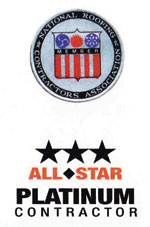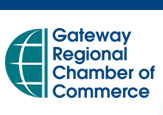How To Choose a Commercial Roofing Contractor
 How to choose a commercial roofing contractor can be an overwhelming process. Your building’s roof system is an important investment; it protects all your interior assets. Additionally, major damage to your building’s roof can affect business and your bottom line. Below is a quick check-list to help you evaluate potential roofers, so you can choose a trustworthy and qualified contractor for all your roofing needs. Professional roofers offer the following:
How to choose a commercial roofing contractor can be an overwhelming process. Your building’s roof system is an important investment; it protects all your interior assets. Additionally, major damage to your building’s roof can affect business and your bottom line. Below is a quick check-list to help you evaluate potential roofers, so you can choose a trustworthy and qualified contractor for all your roofing needs. Professional roofers offer the following:
Permanent Business Address: Confirm that your contractor is well-established with a permanent address, telephone number, tax identification number and, where required, a business license. A professional has these readily available. You may be weary of a contractor who uses a P.O. Box instead of a street address, and whose only telephone number is his cell phone. Well-established companies should have a business number and receptionist.
Knowledge of roof systems: The introduction of new roofing materials and application techniques has sparked a tremendous change in the roofing industry over the past 10 years. A professional roofing contractor is familiar with the different types of roof systems and will help you make the best decision for your building and budget.
Affiliation with an industry organization: Ask the contractor if his company is a member of a local, state, regional or national industry association, such as NRCA, NERCA, or Chambers of Commerce. Involvement in a professional organization tends to keep a contractor better informed about the latest developments and issues in the industry.
Insurance and commitment to safety: Don’t hesitate to ask the roofing contractor for proof of insurance. In fact, insist on seeing copies of insurance certificates that verify workers’ compensation and general liability coverages. Make sure the coverages are in effect through the duration of your job. If a contractor is not properly insured, you, the owner, may be liable for accidents that occur on the property.
Application expertise: Have your contractor list the roofing manufacturers with which his firm has licensed or approved applicator agreements. Some materials require special application expertise to provide a quality roof system that will last.
Insist on a written proposal or estimate: Insist on a professionally written proposal, on company letterhead, with the contractor’s signature. Examine it for complete descriptions of the work and specifications. Be sure the proposal includes the approximate starting and completion dates, payment procedures, and any additional issues such as landscape damage prevention and debris cleanup.
Warranties: There are two basic categories of roofing warranties: the contractor’s warranty, which covers workmanship, and the manufacturer’s warranty, which covers (at a minimum) materials. Be sure that your contractor offers a warranty that covers workmanship.
References and Completed projects: Look for a company with a proven track record that readily offers client references and a list of completed projects. Check the company’s website for pictures and details of projects they’ve completed.
A Professional Maintenance Program: Professional roofing contractors will offer periodic maintenance inspections throughout the year. These inspections will help ensure that your project complies with the standards specified in the warranty. A maintenance program usually consists of a detailed visual examination of the roof system, flashing, insulation and related components to identify any potential trouble areas.





























